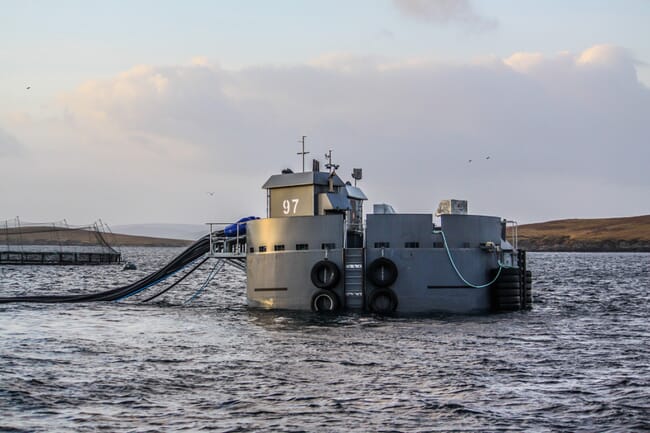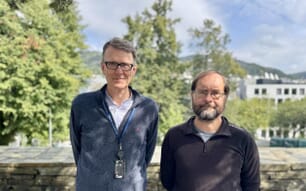
The farm is the first in Shetland to have a hybrid barge installed © Cooke Aquaculture Scotland
The new hybrid system, built by Fjord Maritime UK, for Cooke’s Copister salmon farm site in Yell, Shetland, is the third to be implemented by Cooke Scotland in its commitment to sustainability, following successful results from previous installations at Orkney sites at Mill Bay and Vestness. In 2019, Cooke reviewed barge power to explore alternative sources of power supply to the company’s seawater sites in Orkney and Shetland.
The hybrid system reduces fuel consumption, carbon dioxide emissions and extends the life of the generator and equipment by using the residual capacity from the generator to charge the batteries. The auxiliary diesel generator feeds electricity to the rest of the facility and upon the batteries being fully charged, the generator stops and the hybrid system operates the feed barge.
In a 24-hour period, the Copister barge can gain up to 20 hours of running time from the batteries alone and only relies on four to six hours of power from the barge engine.
Arnold Brown, site manager for Copister, said in a press release: “Yell was one of six islands chosen as part of the Scottish Government’s Carbon Neutral Islands scheme and hybrid barges will contribute its ambition to make the whole country net zero by 2045.”
Steve Burns, managing director for Fjord Maritime UK, said: “Cooke has animal welfare and environmental sustainability at the heart of its salmon production, and we are honoured to be chosen to partner with their commitment to low-impact farming. Our hybrid technology and systems monitoring platform will ensure that Cooke leads the way in carbon footprint reduction.”




